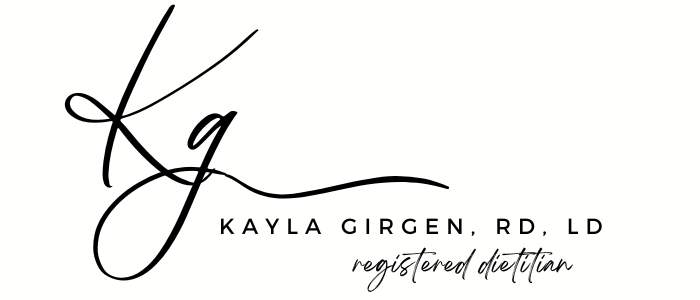Last Updated on March 18, 2023 by Kayla
Do you excel in your professional and home life, yet struggle to muster up the motivation for healthy behaviors like exercise? If your ‘people pleasing’ tendencies leave you last on your long list of to-dos, then accountability for weight loss might be your missing link to success.
If you are tired of falling short and starting over in your weight loss journey, it’s not you that’s to blame – really. It’s your strategy that needs a makeover, and your new plan must include ACCOUNTABILITY.
Weight loss requires more than willpower, and answering to yourself or another person has a profound impact on your weight loss progress and long-term success.
This post explores whether accountability for weight loss is appropriate for you, and how to implement accountability measures in your life.
First, let’s explore who benefits most from increased accountability.
Giving your all *away*
If ‘people pleasing’ and ‘going the extra mile’ are your norm, you might find it difficult to make time for yourself. Perhaps you feel guilty for asking the family to conform to healthier eating habits. Or, you find it hard to go to the gym when you could be following up with customers or cleaning the house.
Regardless, humans are continuously met with expectations – both internal and external. People-pleasers are hard-wired to put the needs of others first. You readily meet external expectations, yet struggle to meet internal expectations.
In her book The Four Tendencies, Gretchen Rubin explains this in great detail. She uncovers how people-pleasers, or ‘Obligers,’ reliably meet external expectations. They hate to ‘inconvenience’ or ‘let down’ other people. With this insight, Obligers can develop accountability systems to facilitate success.
If you are an Obliger and consistently meet external expectations, implementing accountability for weight loss or other health goals will help you achieve results. Here’s how.
How to create accountability for weight loss
As an Obliger, it’s tempting to overextend yourself for the sake of others. It’s important to recognize that in order to take care of others, you must first take care of yourself.
There are several ways to create accountability so you take action on implementing healthy habits.
Reframe your expectations
Use your people-oriented nature to your advantage. Rather than viewing time to yourself as selfish or unnecessary, motivate yourself to become a good role model for others.
Exercise, meal planning, and practicing good self-care become easier when you inspire others while pleasing yourself. Reframe your expectations to include others whenever possible. Here are some examples, including rebuttals for common barriers to weight loss:
- “I don’t have the energy,” turns into “I show up better for my family and clients when I take care of myself. Today, I’ll pack a healthy lunch and walk after work.”
- “No one else can do this as well as I can,” becomes “I’ll delegate this task, so I can focus on something more important.”
- “I don’t have time to meal prep,” is reframed as “I’ll ask my spouse to take the kids out while I prepare meals for the week. They will enjoy the special time together.”
If reframing your expectations and answering to yourself isn’t enough accountability for weight loss, enlist an accountability buddy.

Find an accountibili-buddy
Obligers hate letting others down, so pairing up with another person can be an effective tool for building consistency and sticking to healthy habits. For instance, you might consider the following:
- Schedule a walk with a neighbor or co-worker
- Sign-up for an exercise class
- Plan or exchange healthy meals with a friend
- Link your fitness tracker with friends and family
- Invite your kids to join in your healthy habits
- Share your daily food log on social media
There are several ways to create external accountability for weight loss. Find a fellow people-pleaser, and you’ll both benefit!
Go pro
When personal accountability or answering to a friend isn’t enough, many people find it beneficial to join a program or hire a coach. When you are financially vested in your weight loss success, you perform better; you want to ‘get your money’s worth.’
Working with women after bariatric surgery, I’ve learned that surgery is usually the first time they’ve put themselves first. Initially, it’s uncomfortable to invest time, money, and energy into the surgical process, but I have yet to meet a woman who regrets their decision. The truth is that the physical and mental transformation extends far beyond surgery day.
After surgery when the ‘honeymoon phase’ is over, it’s easy to revert to old habits and self-sabotage when things don’t go your way. For Obligers, accountability can help prevent or reverse habit creep and weight regain.
Success after bariatric surgery involves lots of effort and, sometimes, financial investments. For professional guidance after bariatric surgery, check out my programs page for 1:1 and group coaching options, including my 30-day Back On Track Program.
Overall, accountability helps people pleasers take action on healthy behaviors. Accountability helps individuals stay focused, monitor progress, and model healthy behaviors for others. With the right accountability system, Obligers can stop starting over and achieve long-term weight loss success.
Words from the Wise
Accountability is – first and foremost – about being reliable. To get a good picture of your personal accountability, you may want to periodically ask yourself, “Can people count on me to do what I’ll say I’ll do, as I said I would do it?”
Henry J. Evans, author
As a fellow Obliger and self-proclaimed people pleaser, I’ve realized how being a reliable resource and role model for others helps me take better care of myself. When I exercise consistently, eat plenty of vegetables and protein, and prioritize sleep and self-care, I perform better and am better equipped to serve my clients.
I hope this post helped you recognize that self-care isn’t self-ish. Care for yourself, and others around you benefit too. Imagine you’re paying it forward!
Yours truly,
Helping women after bariatric surgery lose weight without eating “perfect.” Learn how to balance blood sugar & optimize your “tool” today! Apply to learn more!
This post may contain affiliate links. When you make a purchase through any of the links, there is no additional cost to you, and I may earn a small (and very appreciated) commission. Thank you for your support!


